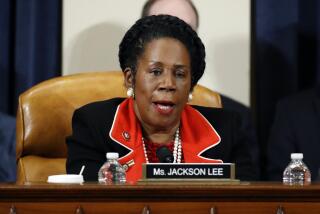It’s no way to save the whales
No one was surprised when conservation organizations such as the Natural Resources Defense Council challenged the anti-environmental policies of President George W. Bush. But it’s a shock to many when we part company with the Obama administration.
It happens. And it’s happening right now on the question of what to do about commercial whaling and, more specifically, whether to maintain the 25-year-old moratorium against the killing of whales for profit. Last week, the International Whaling Commission announced a proposed 10-year deal, spearheaded by the Obama administration, that would suspend the moratorium and allow whaling countries to kill whales legally for commercial purposes for the first time in a generation.
There’s no disagreement between the council and the administration about the fact that the moratorium is one of the singular environmental achievements of the 20th century. Before it was adopted, on average an estimated 38,000 whales were being killed each year. Since the moratorium, that number has dropped to about 1,240, and whale populations have begun, little by little, to rebound.
There’s no disagreement that whales are among the most extraordinary creatures ever to inhabit the Earth. And there’s no disagreement that we need to protect them, or that many of the large whale species covered by the proposed agreement -- humpback, fin, sperm, sei and Bryde’s whales -- are depleted or near extinction.
The problem is how best to protect them.
The Obama administration argues that the whaling moratorium should be suspended because it has loopholes that are being illegally exploited by Japanese, Norwegian and Icelandic whalers. They believe that after 25 years of conflict within the International Whaling Commission, commercial whaling should be legalized in the hope that, by bringing the killing out into the open through agreed-upon quotas, a consensus eventually will emerge in support of a phase-out of whaling altogether.
Its intentions are good. But the strategy is dead wrong.
First, the proposed deal nowhere requires a phase-out of whaling. Not in 10 years. Not ever.
Second, legalizing whaling in order to eliminate it makes as little sense as allowing criminal activity in order to eliminate crime. By adopting the moratorium on commercial whaling, the world agreed that whaling, except for purposes of scientific research and subsistence, should not be allowed. Period. By suspending that global norm, the U.S. and the whaling commission will be ceding the legal and even the moral high ground to the very countries that, for decades, have been doing their best to circumvent it. Rather than a step forward in the fight against commercial whaling, this is a monumental step backward.
Third, the hope that reaching an agreement with the whalers will, in some undefined way, appeal to their better nature, eventually strengthen their interest in conservation and lead them at some future point to abandon whaling is, at best, wishful thinking. It is belied by the history of the whaling commission, where the whaling countries, even in the wake of the international agreement not to kill whales for commercial purposes a generation ago, have sought relentlessly to evade or end it. Japan exploits the exception for scientific research; Iceland and Norway assert their right to take exception to -- and therefore ignore -- the moratorium.
The Obama administration’s fundamental premise -- that the proposed agreement will save thousands of whales over the next decade -- doesn’t withstand scrutiny. The agreement suggests quota numbers, but no actual numbers have been agreed to among the nations of the whaling commission -- or even among the smaller group of nations that have, for the last three years, been negotiating the proposed agreement behind closed doors. The actual number of whales allowed to be killed if the agreement is adopted is, at this point, anybody’s guess.
But even were that not the case, the situation that led the Obama administration to pursue this agreement in the first place would be unaffected by it. The exception for scientific whaling exploited by Japan will not be rescinded, nor will the exceptions claimed by Norway and Iceland be nullified. The agreement is fundamentally premised on an expectation that the countries signing the agreement will abide by it, notwithstanding their continuing right under the broader whaling convention to kill whales for research or pursuant to their existing exception. Thus, the fundamental problem of loopholes remains.
Finally, even if some might consider limited “sustainable whaling,” it should adhere to science-based management principles. However, the quotas under negotiation now are not a product of the whaling commission’s scientific committee. The negotiating process has been political, based on what the whaling countries are willing to accept rather than being governed by a scientific process to develop catch quotas consistent with the recovery of whale stocks.
Reasonable minds often can and do differ, even among friends. But the whaling commission’s proposal for the next decade is a terrible idea. It would do more to protect the whaling industry than to protect whales, and it would be a tragic step backward to an era when the most magnificent animals on Earth could legally be slaughtered for profit.
President Obama, we strongly urge you to reject the deal on commercial whaling. Your administration is making great strides in developing a sound national policy for the protection of our oceans. Don’t let the return of legalized whaling become your legacy.
Joel R. Reynolds is a senior attorney and director of, among other programs, marine mammal protection at the Natural Resources Defense Council in Los Angeles.
More to Read
Sign up for Essential California
The most important California stories and recommendations in your inbox every morning.
You may occasionally receive promotional content from the Los Angeles Times.






